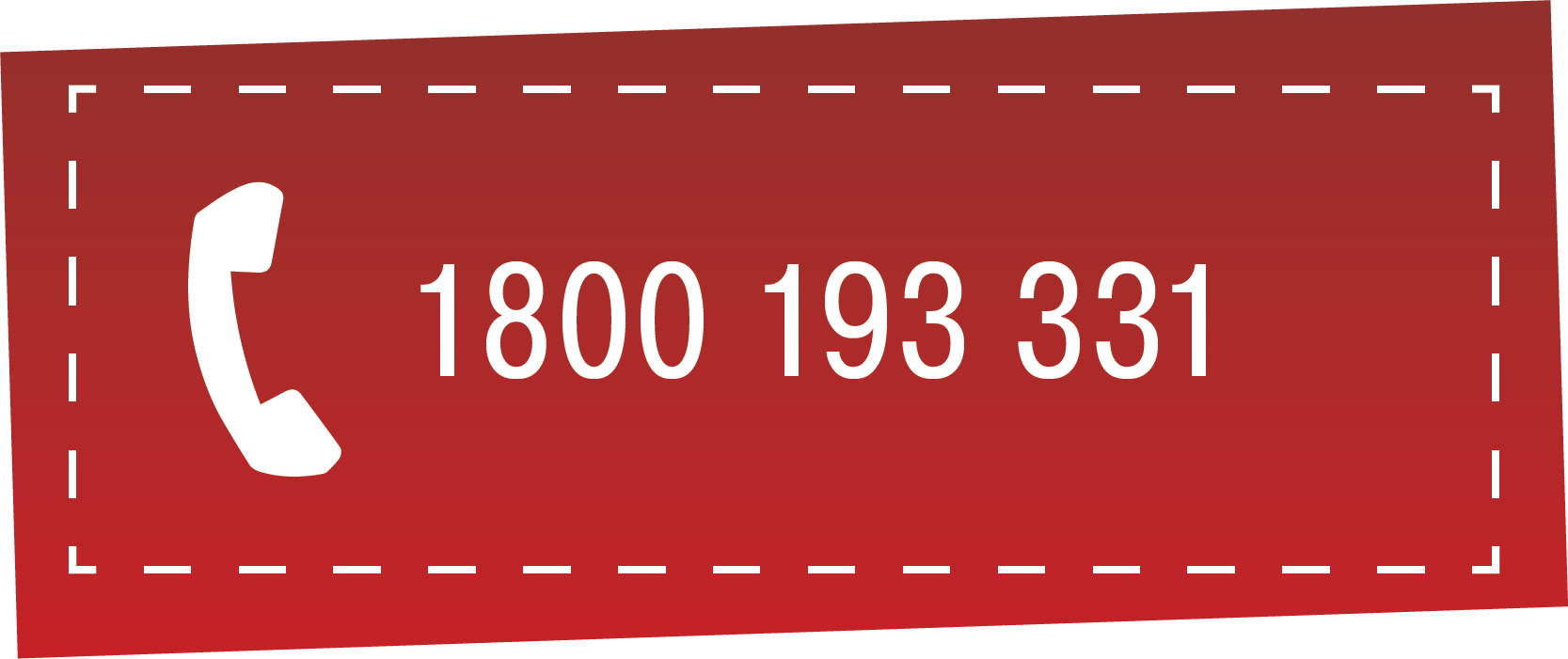How to use this document
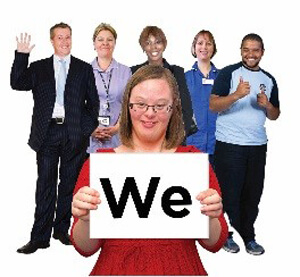 |
People With disabilities WA wrote this document. When you see the word ‘we’, it means People With disabilities WA. |
|
We have written this information in an easy to read way. We use pictures to explain some ideas. |
|
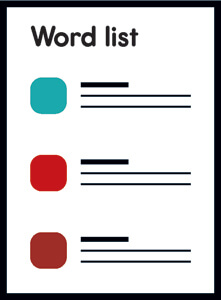 |
We have written some words in bold. We explain what these words mean. There is a list of these words at the end of this page. |
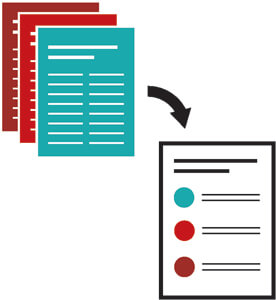 |
This Easy Read document is a summary of another document. |
|
You can find the other document here: |
|
.jpg) |
You can ask for help to read this document. A friend, family member or support person may be able to help you. |
What's in this document?
Who can use our advocacy service?
How to use our advocacy service
Referring you to another organisation
How we provide our information
How we make information about us accessible
What is individual advocacy?
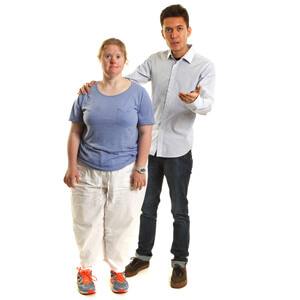 |
An advocate is a person who supports you. They help you have your say and to stand up for your rights. |
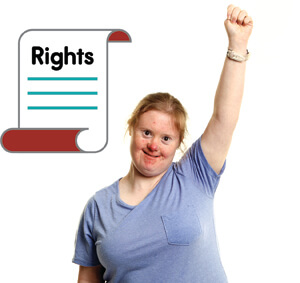 |
Having rights means you can expect to be treated fairly. |
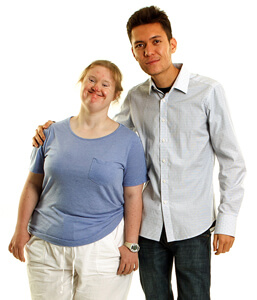 |
Individual advocacy is when a professional advocate supports a person with a problem. |
 |
The problem is usually one they haven’t been able to solve on their own. |
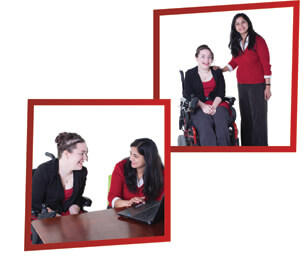 |
An individual advocate must be independent. This means that they must:
|
What is this document about?
 |
This document explains how our advocacy services work. |
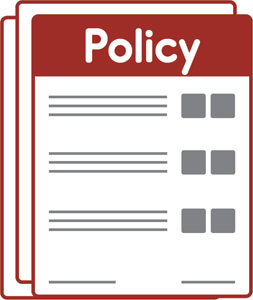 |
This document is our policy for individual advocacy. A policy is a plan for how we will do things. |
Why do we have this policy?
|
This policy is to help people with disabilities and their families in Western Australia to: |
|
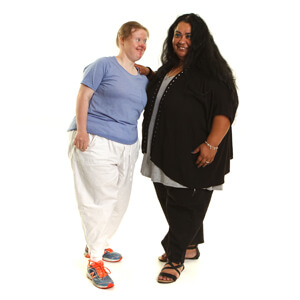 |
|
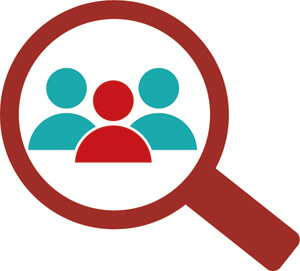 |
|
What we want to do
|
We want to: |
|
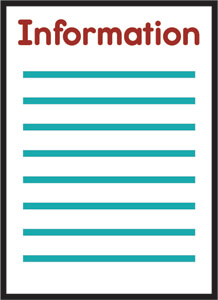 |
|
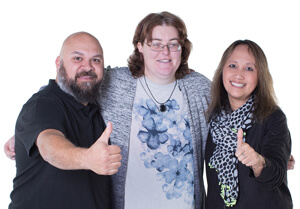 |
|
 |
|
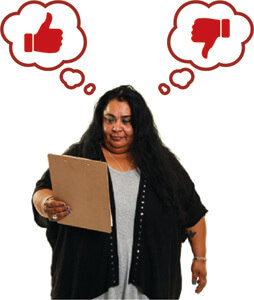 |
|
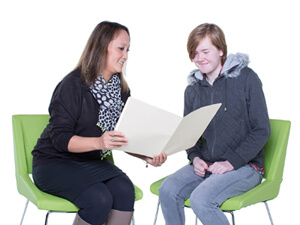 |
|
Who is this policy for?
 |
This policy is for:
|
Who can use our advocacy service?
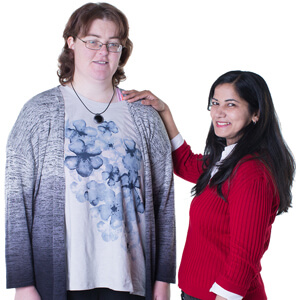 |
Our individual advocacy service is for people in Western Australia who have a disability. People who support or represent a person with disability can also use this service. |
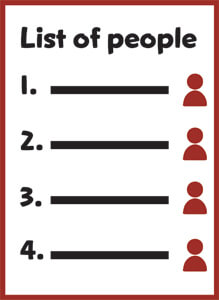 |
We work with people in a particular order. |
|
The people at the top of our list are the people who: |
|
 |
|
 |
|
 |
|
How to use our advocacy service
 |
When you ask us to advocate for you we:
|
 |
|
 |
We also ask you if there are any things about your culture that you would like us to know about you. |
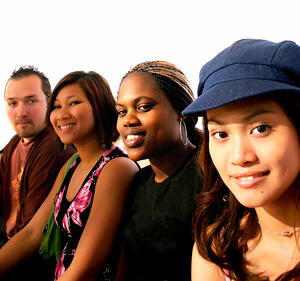 |
Culture is a way of life. There are many different cultures in Australia and around the world. You may think or act in a certain way because of the culture you have grown up with. |
 |
We can find someone to translate or interpret for you, if you need it. |
 |
Once we have worked out that we can advocate for you, we will explain what happens next. |
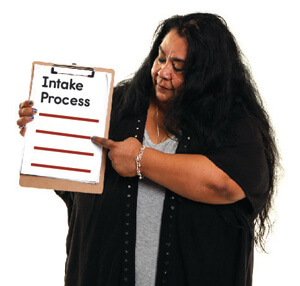 |
We have an intake process. Our intake process is the steps we go through when we start working with you. |
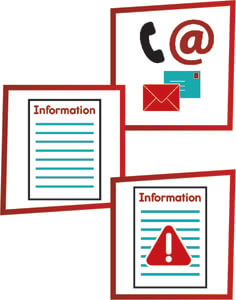 |
|
 |
We will write this information down and put it in our database system. |
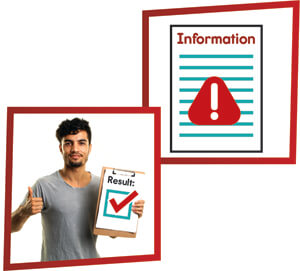 |
We will make a case for you. Your case will include:
|
 |
They will look at your case and decide who will be the best advocate for you. |
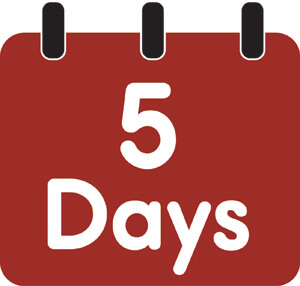 |
They will usually contact you in 5 working days. |
 |
Sometimes we are very busy. We might not have an advocate that can work with you straight away. |
|
If this happens, we will: |
|
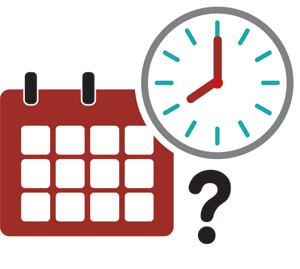 |
|
 |
|
 |
|
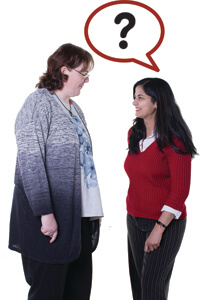 |
If we are not able to advocate for you, we will:
|
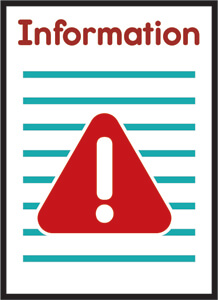 |
|
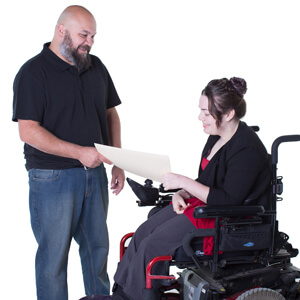 |
|
How we work with you
 |
We support you to have your say and be heard. |
 |
You can ask other people to take part and help you solve your problem. Friends, family members or support people may be able to help you. |
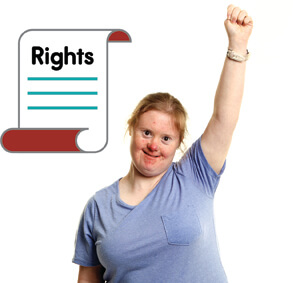 |
We help you to learn about your rights. |
 |
We can also help you learn self-advocacy skills. Self-advocacy is when a person with disability is supported to speak up for themselves. |
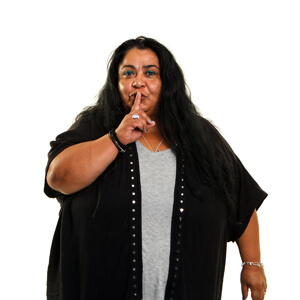 |
We will respect your right to be treated well. We will also make sure your information is kept private and safe. |
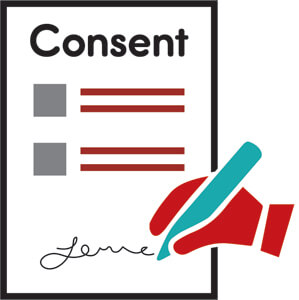 |
We will ask you to sign a consent form. This form means we are allowed to get information and speak for you. |
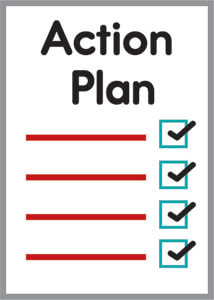 |
We will make an action plan. The plan will list everything you need to do and everything we need to do. |
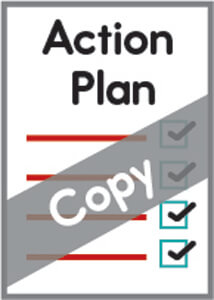 |
We will give you a copy of the plan. We will also put the plan into our database system. |
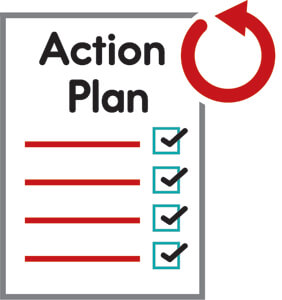 |
We will update the plan to show the things that have been done and any new things that need to be done. |
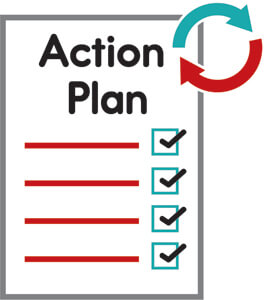 |
We can change the plan if things in the case change or what you want changes. |
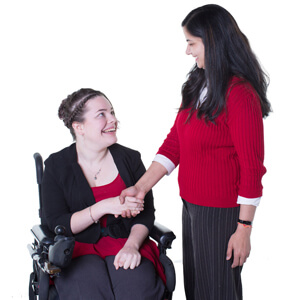 |
We will only make changes to the plan if you agree. |
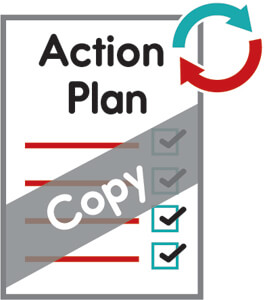 |
You can ask us for a new copy of the plan that shows any changes we have made. |
Referring you to another organisation
 |
Sometimes we are not able to advocate for you or there is a service that will suit you better. |
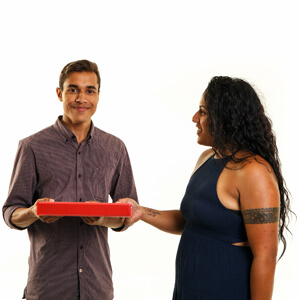 |
We will ask if you would like us to refer you to another organisation or service. If you say yes, we will give the other organisation your information. |
 |
We keep in contact with a wide range of organisations and services. This is so we know the best place to refer you to. |
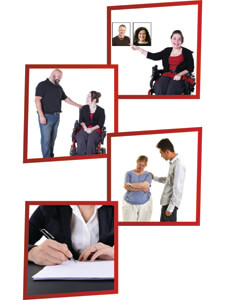 |
If we refer you, we will:
|
When will your advocacy end?
 |
You can stop using our service whenever you want. |
 |
We will talk to you about closing your case:
|
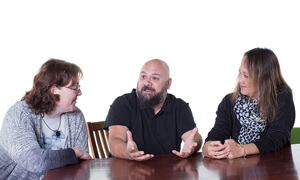 |
|
|
We can stop your service if: |
|
 |
|
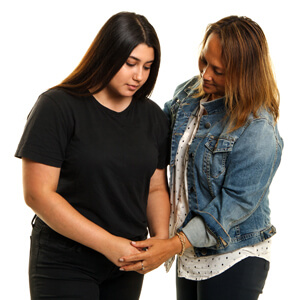 |
|
 |
|
.jpg) |
|
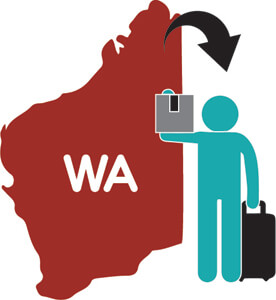 |
|
 |
|
.jpg) |
We can try to find another organisation to help you, if you need it. |
How we provide our information
 |
We provide our information in a range of formats including:
|
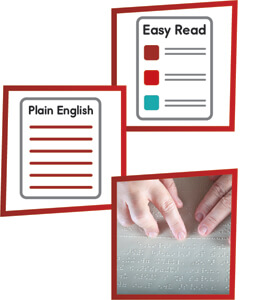 |
If you let us know, we can also give you information in:
|
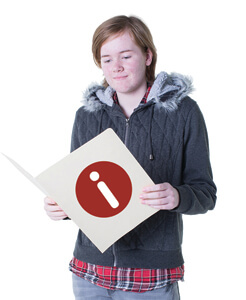 |
Our information is up-to-date and specific to what you need. |
 |
Our advocates find information through organisations and people that they know and the internet. |
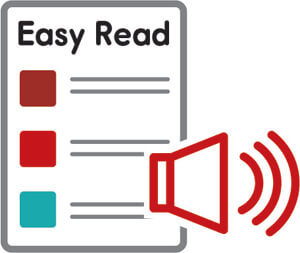 |
We can give you information in the way that is easiest for you to use, such as in Easy Read or in audio format. |
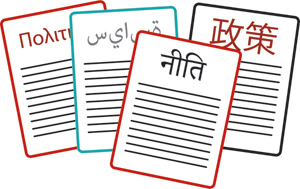 |
We can translate information into other languages, if you need it. |
 |
We will get any information you ask for as soon as we can. |
 |
If you call us to ask for information, you don’t need to give us any proof of your disability. |
.jpg) |
If you give us your contact details, we will keep them private. |
How we make information about us accessible
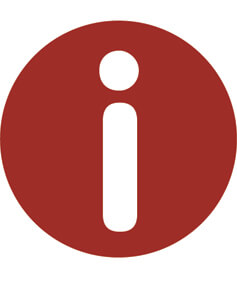 |
We make information about our services in a range of formats. |
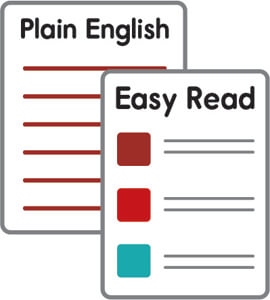 |
Many of our documents are in plain English or Easy Read, like this document. |
 |
We can make our documents or information into different accessible formats. |
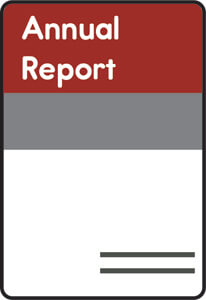 |
We promote our services by:
|
 |
|
 |
|
 |
|
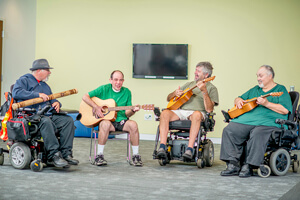 |
|
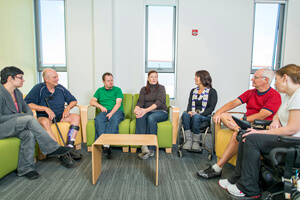 |
|
 |
|
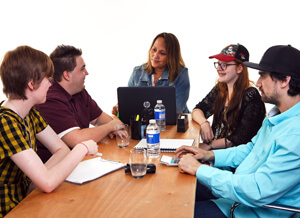 |
|
Other documents that go with this policy
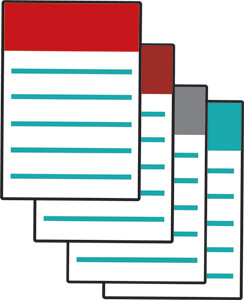 |
There are 4 other documents connected to this policy, our:
|
Word list
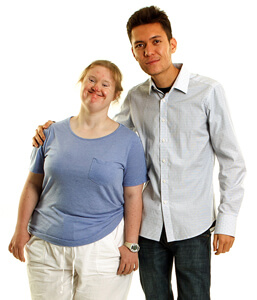 |
Advocate An advocate is a person who supports you. They help you have your say. They can also give you information and advice. |
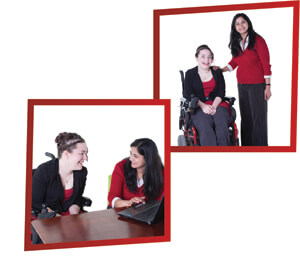 |
Independent If a person is independent they must:
|
.jpg) |
Individual advocacy Is when a professional advocate supports a person with a problem. The problem is usually one they haven’t been able to solve on their own. |
.jpg) |
Intake process This is the steps we go through when we first start working with you. |
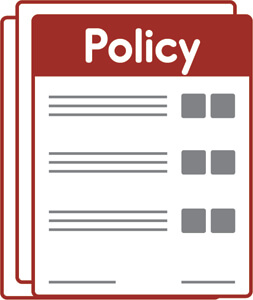 |
Policy A plan for how we will do things. |
.jpg) |
Rights Having rights means you can expect to be treated fairly. |
.jpg) |
Self-advocacy When a person with disability is supported to speak up for themselves. |
For more information
|
You can contact us on: |
|
 |
08 9420 7279 Country Callers 1800 193 331 |
 |
|
 |
City West Lotteries House Unit 23, 2 Dehli Street West Perth WA 6005 |
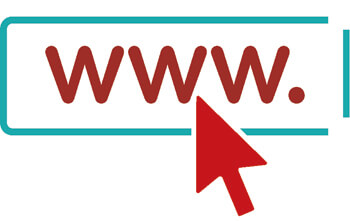 |

